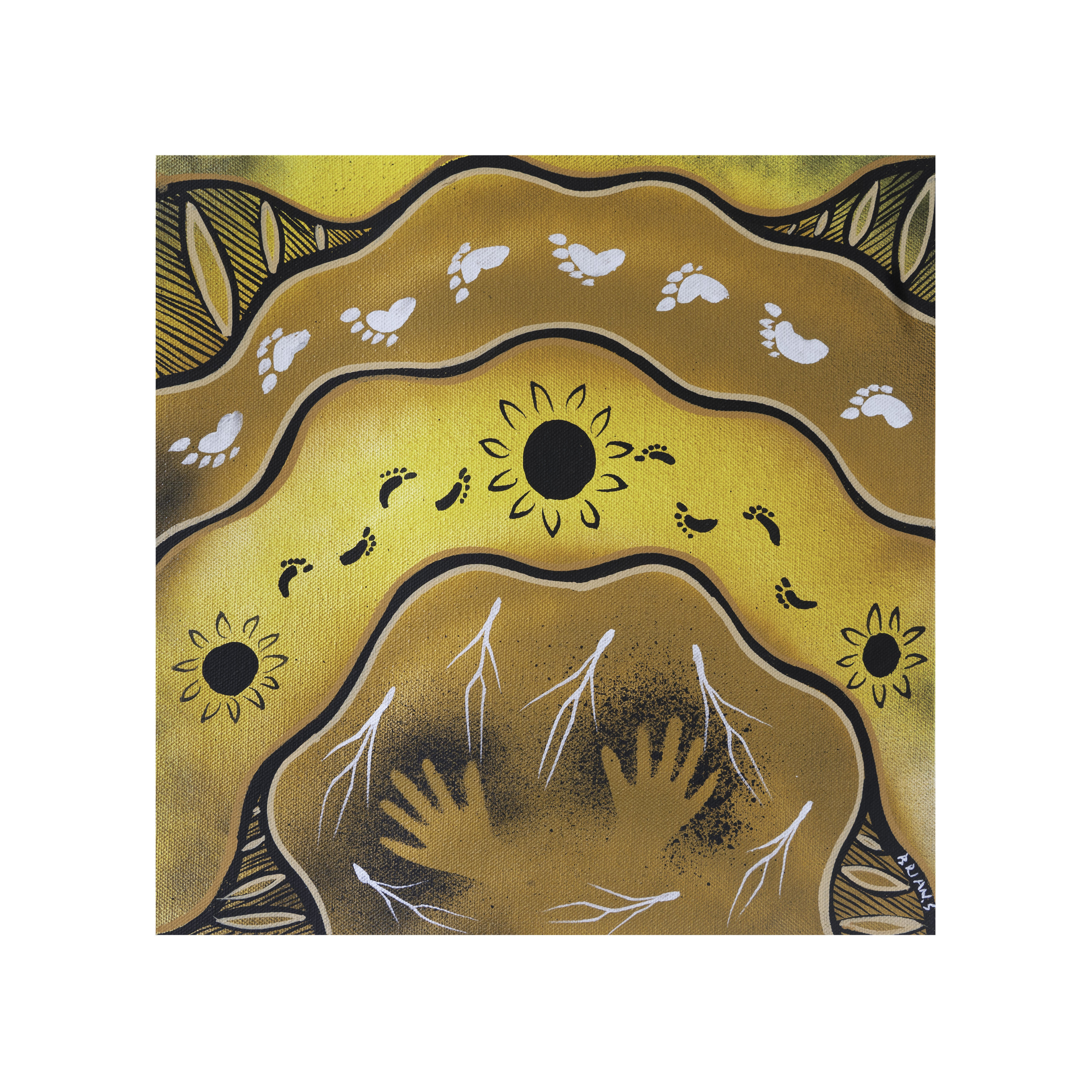Kulka ‘to dance a corroboree’, by Brian Smith, 2018
When: Thursday, April 11 2019, 6:10- 7:30pm
Where: 509 Knox Hall
This presentation will tell the story of Aboriginal familial response to and reclamation of the Norman B Tindale Aboriginal genealogical records, 1938-39 and 1952-55, in the South Australian Museum in Adelaide Australia. While there are perceived flaws in the genealogical records, when connected to the photographic collection and oral histories a deeper reading and understanding provides essential familial and cultural information. These records illustrate how details were cross-referenced with family members, demonstrating Aboriginal people’s agency in maintaining and disseminating family and cultural information. In Wangkumara kinship lore an individual’s genealogy is passed through the mother’s line and it is from where an individual gets their Meat, their totem. Reconnecting and reclaiming familial records allow us to ‘chase our mob in the archives’, to reframe and re-story genealogical records, and by doing so, begin the restorative process for our family, history and culture.
Lorina will share the reclamation of familial and cultural information and the inclusion of these memories, stories and experiences in the Looking Through Windows multimedia project. The project will take you on a journey of Aboriginal removal from Country to government-controlled places on the fringes of white Australian society. Listen to the oral histories that have been transformed into an array of multimedia: the spoken word, film, songs, art, sculptures and a theatre performance.
Lorina’s journey into the history of Aboriginal removal began as a yarn with her Grandmother, Amy Elwood, which was transformed into the spoken word, and formed part of the script for the film, Tibooburra: My Grandmother’s Country. The ‘data’ from the film shoot was used in a community multimedia exhibition, which became the prototype for the Looking Through Windows project.
Yarning is a culturally inherent form of knowledge transmission and an integral component of Indigenous oral history, a millennia long tradition that is intrinsically woven into Aboriginal people’s way of life, history and culture.
Lorina will share from an Indigenous women’s standpoint what it means to decolonize oral history from within the academy by untangling and validating yarning as an Indigenous research methodology, that gives voice to Indigenous people’s stories, memories and experiences and privileges Indigenous people’s knowledge, history and culture.
This event is co-sponsored by New Directions in American Studies at Barnard College and the Oral History Master of Arts.
Lorina Barker is a descendant of the Wangkumara and Muruwari people of Northwest NSW, the Adnyamathanha of the Flinders Rangers, SA, the Kooma of Southwest QLD and the Kurnu-Baakandji and Kunja people of Northwest NSW and a Senior Lecturer at the University of New England in New South Wales, Australia. She is the Oceania Representative for the International Oral History Association.
Blog Post by OHMA students about this talk:
Indigenous scholar’s work informs new Columbia University + Wikipedia Initiatives
“Keeping Oral History Alive” —— Diversity in the Application of Oral History

